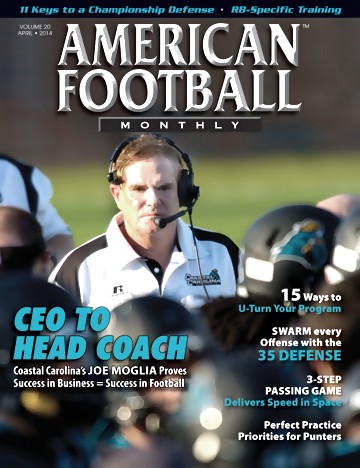Article CategoriesAFM Magazine
|
Letter from AFM – Social Studiesby: John GallupEditor and Publisher © More from this issue When the subject of social media came up at a recent NFL HSPD Leadership Program session for top high school student-athletes, NFL Player Engagement representatives had a unique way of presenting the perils of posting on social media sites. One by one, they asked athletes to stand up and read actual tweets they had sent out, which the NFL had previously collected and projected on a big screen. The results of the exercise weren’t pretty. Many tweets included foul language and derogatory comments about coaches, teachers or students. Others mentioned drinking or drug use. While it might have been embarrassing for the participants, the lesson was learned – your character is revealed by what you post on social media. Since tweets and Facebook postings are available for the world to see, anything that reflects poorly on a young athlete can easily be viewed by a recruiter, coach or future employer as a red flag. Like it or loathe it, social media is here to stay. Especially among youth, it’s become part of daily life. The NFL has taken an active role in helping high school athletes understand how to and how not to use their social media accounts by incorporating a presentation into the hundreds of events each year where they interact with young athletes. AFM believes that coaches should follow their lead. By using your position of authority, you can help your athletes understand that, as the police might say, “Anything you say can and will be used against you.” On the NFL’s HSPD web site, in the “Character Development” section, there’s a very helpful “Social Media Toolbox”, prepared by Player Engagement, that contains a comprehensive list of do’s and don’ts for students who use Facebook, Twitter or any of the other social media services that seem to be introduced daily (https://www.nflhspd.com/hs-player-development/character-development/). There are many great tips, including one that sums up the overall message – “Don’t post or tweet anything that you wouldn’t want your mother to read.” The Social Media Toolbox can be duplicated and distributed to your athletes or used as a guide for a team discussion. Either way, it’s important for all young athletes to understand that they need to think before they post, and you can help. We’ll do our best to keep our content relevant, informative and entertaining. Even though some of us here go back to the days of manual typewriters and rotary phones, we’re having fun with social media and are open to suggestions about how we can get better. By all means, if you have something that you’d like to share with other coaches, you’re welcome to post comments on our Facebook page or tweet us directly. We thank our current followers and invite all coaches to become part of the AFM social community. |
|
| HOME |
MAGAZINE |
SUBSCRIBE | ONLINE COLUMNISTS | COACHING VIDEOS |
Copyright 2025, AmericanFootballMonthly.com
All Rights Reserved




